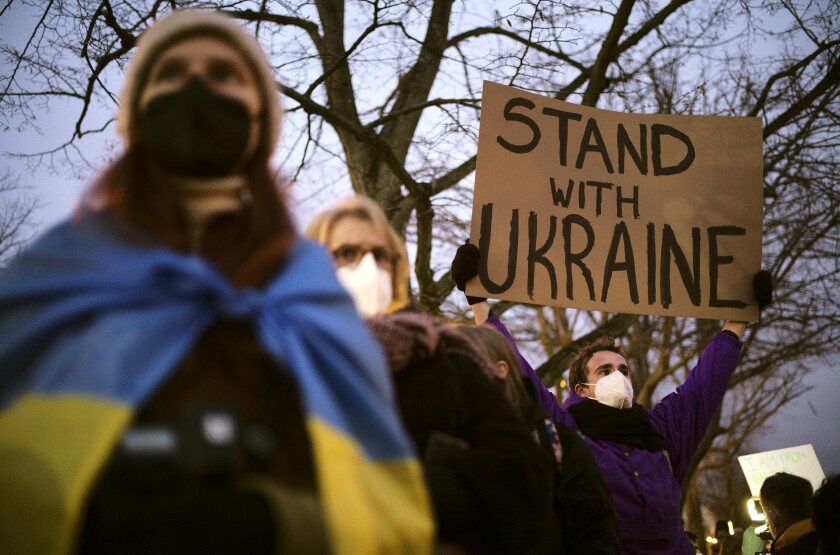- Joined
- Feb 26, 2019
- Messages
- 12,449
- Points
- 113
EU citizens prefer Ukraine war to end sooner rather than extending the war to 'punish Russia'- Poll

Survey across 10 European countries and UK shows respondents favouring an end to the conflict rather than holding Russia accountable.
The survey in nine EU member states – Finland, France, Germany, Italy, Poland, Portugal, Romania, Spain and Sweden – plus the UK found support for Ukraine remained high, but that preoccupations have shifted to the conflict’s wider impacts.
Europeans had surprised Putin – and themselves – by their unity so far, but the big stresses are coming now,” said Mark Leonard, a co-author of a report by the European Council on Foreign Relations (ECFR) on changing attitudes to Russia’s invasion.
The survey found that despite strong support across Europe for Ukraine’s bid to join the EU and the west’s policy of severing ties with Moscow, many voters in Europe want the war to end as soon as possible – even if that means Ukraine losing territory.
In the early stages of the war, countries in central and eastern Europe felt vindicated in their hawkishness towards Russia,” write Leonard and his co-author Ivan Krastev. “But in the next phase countries such as Poland could find themselves marginalised if the ‘peace’ camp broadens its appeal among the other member states.”
But ECFR’s polling showed a clear divide between Europeans who want peace as soon as possible (35% across the 10 countries), and those who want justice – defined as restoring Ukraine’s territorial integrity and holding Russia to account (22%).
Asked what worried them most about the war, respondents in Germany, Italy and France were most concerned about the cost of living and energy prices, while respondents in Sweden, the UK and Poland were most concerned about the threat of nuclear war.
As the conflict drags on and costs grow, governments will increasingly be forced to “balance the pursuit of European unity with opinions that diverge both within and among member states”, the authors write, pointing to a “growing gap between the positions of many governments and the public mood in their respective countries”.

Survey across 10 European countries and UK shows respondents favouring an end to the conflict rather than holding Russia accountable.
The survey in nine EU member states – Finland, France, Germany, Italy, Poland, Portugal, Romania, Spain and Sweden – plus the UK found support for Ukraine remained high, but that preoccupations have shifted to the conflict’s wider impacts.
Europeans had surprised Putin – and themselves – by their unity so far, but the big stresses are coming now,” said Mark Leonard, a co-author of a report by the European Council on Foreign Relations (ECFR) on changing attitudes to Russia’s invasion.
The survey found that despite strong support across Europe for Ukraine’s bid to join the EU and the west’s policy of severing ties with Moscow, many voters in Europe want the war to end as soon as possible – even if that means Ukraine losing territory.
In the early stages of the war, countries in central and eastern Europe felt vindicated in their hawkishness towards Russia,” write Leonard and his co-author Ivan Krastev. “But in the next phase countries such as Poland could find themselves marginalised if the ‘peace’ camp broadens its appeal among the other member states.”
But ECFR’s polling showed a clear divide between Europeans who want peace as soon as possible (35% across the 10 countries), and those who want justice – defined as restoring Ukraine’s territorial integrity and holding Russia to account (22%).
Asked what worried them most about the war, respondents in Germany, Italy and France were most concerned about the cost of living and energy prices, while respondents in Sweden, the UK and Poland were most concerned about the threat of nuclear war.
As the conflict drags on and costs grow, governments will increasingly be forced to “balance the pursuit of European unity with opinions that diverge both within and among member states”, the authors write, pointing to a “growing gap between the positions of many governments and the public mood in their respective countries”.



